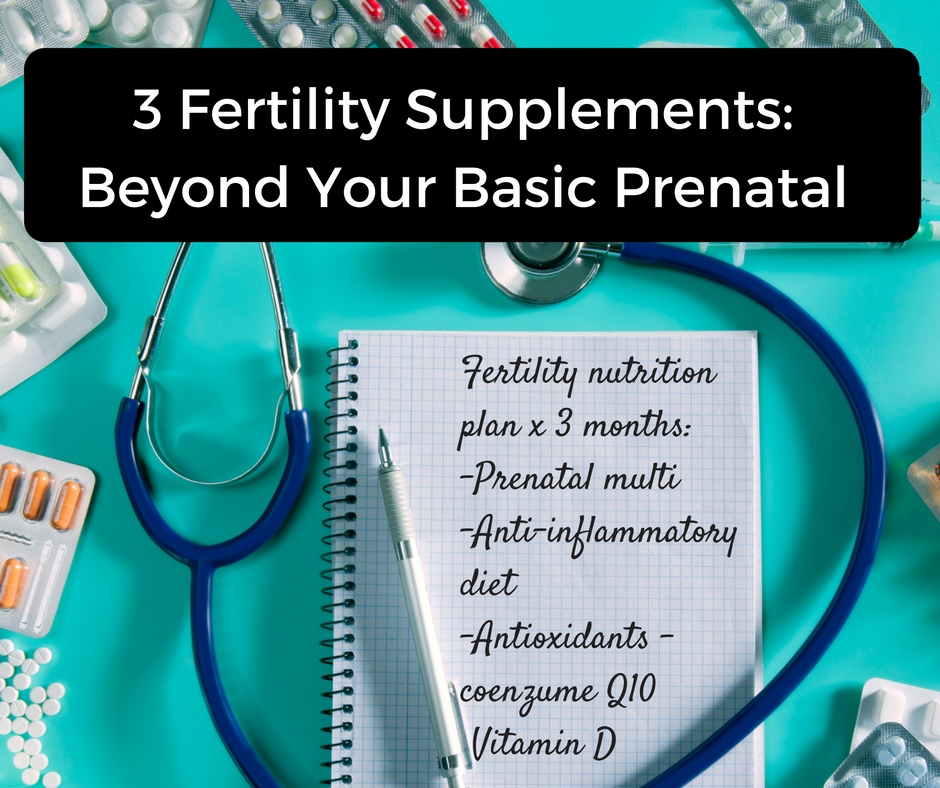One of the questions I’m asked most about is supplements for fertility.
As a naturopathic doctor, creating treatment plans including clinical nutrition plans, supplements and herbs is an individualized discussion based on your symptoms, history, diet and blood work.
My oath as a doctor includes the responsibility to teach the principles of healthy living. I take this further in my work with patients and clients because I want to teach you enough to help you empower yourself in your own health journey – including with your fertility. This is because I recognize the healing potential in you, and I know that evidence-based natural medicine along with your daily self-care and the work that you do on your mindset is what will actually help you heal.
And when you heal, you optimize your fertility.
So let’s figure out the 3 most common underlying issues in infertility and how high-quality supplements can help you recover.
- Fanning Flames
You know how the embers after a campfire can keep smoldering, and when the wind hits them they can surprise everyone with a devastating fire?
That’s like the underlying inflammation that’s linked with so many infertility-related conditions, including endometriosis, fibroids, and autoimmune issues like Hashimoto’s.
I’ve helped women and men to naturally reduce levels of inflammation in their bodies so their systems can heal and function optimally. The first step is always nutritional: a brief assessment of your typical meals and snacks, a nutritional blood test panel, sometimes food sensitivity testing, in the context of your symptoms usually creates clarity about what you need to relieve inflammation through day to day food choices and cooking methods, implementing choices that you and your partner can actually enjoy! (Check out my 21-Day Fertility Cleanse Program and learn how delicious an anti-inflammatory diet can be!).
Next steps are to implement specific supplements where indicated to address these underlying flames of inflammation. We always want to try to get to the root of the problem. What excess chronic inflammation is actually doing is aging your cells – including your eggs. A faster rate of egg aging is associated with premature ovarian failure and poor egg quality. A nutrient that is known to help reverse this aging process and help to supply the egg (and sperm) with energy is coenzyme Q10. In a recent experimental study, researchers found that supplementing animals with premature ovarian failure improved both egg quality and egg quantity. CoQ10 is also associated with improved ovulation rates in animal studies. Women who are trying to conceive are often recommended to take 200-800mg coenzyme Q10 daily. This nutrient also helps to protect sperm cells from damage, thus healthier more fertile sperm containing DNA with fewer mutations that could be passed onto your babe. In studies where men have been given coenzyme Q10 for fertility, doses of 60 mg daily together with a complex of other antioxidants such as vitamin C, vitamin E, carnitine have been used to successfully improve sperm quality.
2. Hormonal Havoc
The most common female hormone disorder globally, polycystic ovarian syndrome (PCOS) affects 10% or more women and is often undiagnosed for years, masked by oral contraceptives or not investigated until a woman is ready for pregnancy. PCOS results in fewer ovulations per year which can not reduces opportunities to conceive but also puts a woman’s bone density, cancer prevention and metabolism at risk.
PCOS is associated with higher than normal level of androgens (“male” hormones such as testosterone and DHEA-S), an increased risk for underlying chronic inflammation, thyroid disorders and insulin resistance or type 2 diabetes – all of which definitely decrease fertility.
Inositol is the #1 supplement indicated for women with PCOS. It is equally effective as the conventional drug metformin at relieving insulin resistance and restoring ovulation. The very important benefit of inositol over metformin is that the drug has recently been shown to have embryotoxic properties. Metformin also adversely affects in utero genetic metabolism programming, resulting in higher risk for obesity and diabetes later in life when taken during pregnancy in animal studies. A prominent Toronto fertility clinic & research centre has stopped using metformin as a rule.
3. D is for Deficiency
Known as the “sunshine vitamin”, vitamin D is best known for promoting absorption of dietary calcium for strong bones, promoting the immune system, and even for its ability to support a healthy mood in cases of depression and seasonal affective disorder. Vitamin D is least known for its role in fertility. Vitamin D deficiency is correlated with IVF failure, while replenishing this nutrient is associated with fertility success. Vitamin D also influences the way progesterone and estrogen receptors function and has been proposed as a potential treatment for fibroids.
Vitamin D deficiency is extremely common. There are no outward symptoms so deficiency can persist for years. Many of my patients who have vitamin D deficiency have generalized fatigue that’s unexplained by other causes…some of them have issues with their immune systems. I encourage all of my patients to consider getting a vitamin D test every few years to help assess how much vitamin D they should be taking, especially men and women going through fertility issues. Vitamin D also plays a role in programming your baby’s immune system while in utero, and you’ll need more when you’re breastfeeding.
If you’re a woman who’s wanting to get pregnant and looking for more support, a Fertility Discovery call is a good next step for you. It’s easy to apply: simply click here to choose a time, then check your inbox, and we’ll be in touch very soon to set up a time to see if it’s a good fit to do some work together.
I look forward to the opportunity to help you achieve your ultimate dream.


